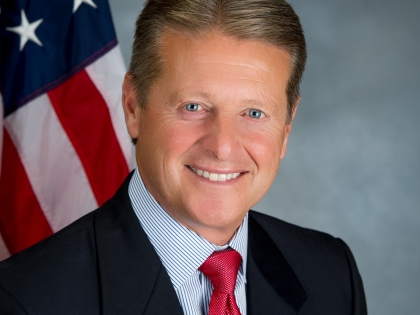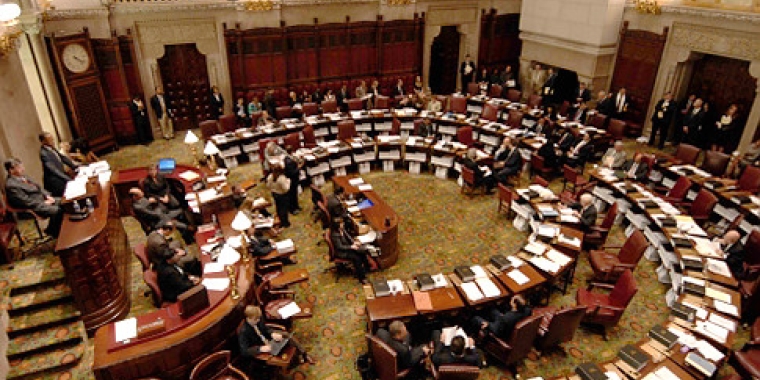
Gallivan Co-Sponsored Ethics Bill Passes Senate
Patrick M. Gallivan
June 12, 2011
-
ISSUE:
- Ethics
Public Integrity Reform Act Creates Powerful New Oversight Commission, Requires Financial Disclosure
Senator Patrick M. Gallivan (R,C,I – 59th District) announced today that the New York State Senate overwhelmingly passed the sweeping ethics reform legislation announced last week.
The reform package, titled The Public Integrity Reform Act of 2011, includes measures requiring lawmakers to disclose their outside income, any clients with business before the state and other financial interests. It also creates a stronger oversight entity for elected officials and lobbyists, and calls for the forfeiture of public pensions for officials who commit crimes related to their public office; among other reforms.
“This bill is firm and aggressive, it addresses Albany’s most glaring lapses in ethical oversight, ends the exhaustive political charades to withhold certain information from the public, and holds lawmakers accountable to their constituents,” said Gallivan.
The agreement creates the Joint Commission on Public Ethics, replacing Albany’s current oversight apparatus, the Commission on Public Integrity. The Joint Commission on Public Ethics will possess bold new authority to investigate potential violations and conflicts of interest in both the executive and legislative branches, and regulate and make public financial disclosure information provided by lawmakers, staff, and lobbyists.
“I am certain the vast majority of elected officials in this state are honest and decent individuals, committed to their constituents and responsible leadership, but over the years it has become apparent stricter rules are needed to ensure that the bad actors are identified, removed from office, and appropriately punished,” said Gallivan.
The Public Integrity Reform Act also clarifies the practice of legislative lobbying and enacts significant campaign finance reforms. Lobbyists will now be subject to stricter financial disclosure guidelines and their actions subject to increased scrutiny from the Joint Commission on Public Ethics.
The Board of Elections will be directed to regulate the disclosure of Independent Election Expenditures which have become common practice in recent years, and the act increases penalties for certain violations of state election law.
“This is a once-in-a-generation chance to structurally change the way Albany operates, to continue the momentum achieved during the very cooperative budget process, and restore faith in state government,” concluded Gallivan.
Many good-government groups have issued statements in support of the Public Integrity Reform Act of 2011, including, Common Cause, the Citizens Union, New York State Public Interest Research Group, the Brennan Center for Justice’s Democracy Program at NYU School of Law, and the League of Women Voters.
Share this Article or Press Release
Newsroom
Go to NewsroomSenator Gallivan Leads Senate in Recognizing School Resource Officers
February 14, 2025

Senator Gallivan's Votes for the Week of February 10, 2025
February 14, 2025


